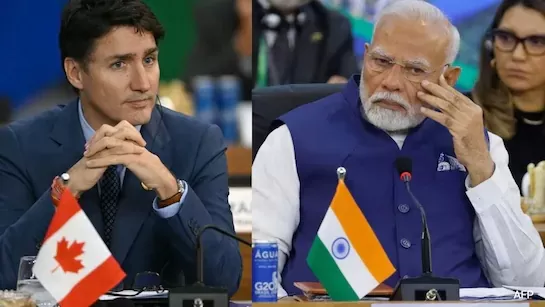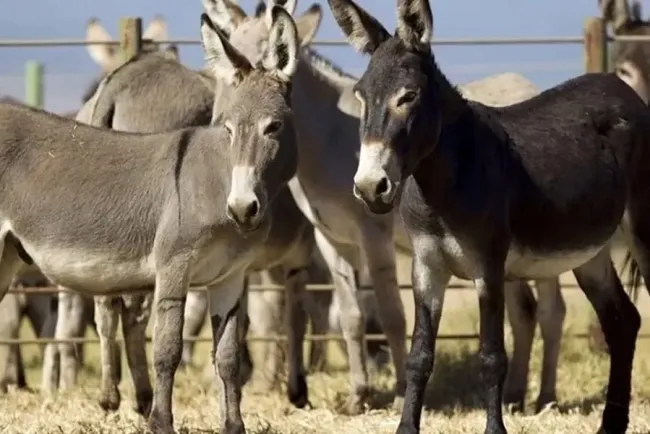Canada’s Blame Game: Accusing India of Election Meddling Without Evidence
A new Canadian report has stirred controversy by accusing India of interfering in Canada’s elections. This comes on the heels of allegations against China, which was identified as the top foreign actor in meddling with the country’s political processes. India has strongly rejected these claims, arguing that Canada’s own actions—such as promoting illegal migration and harboring separatists—deserve more scrutiny. The latest dispute between the two nations reveals deeper tensions surrounding their diplomatic relations.

In a controversial report, Canada has accused foreign powers of meddling in its elections, with China and India named as the primary culprits. While China has been identified as the top meddler, with claims that it influenced the 2019 and 2021 Canadian elections to ensure a victory for Prime Minister Justin Trudeau’s government, India has been unexpectedly pulled into the controversy. The Canadian report insinuates that India may have interfered in Canadian politics through financial support for certain candidates and possibly a disinformation campaign aimed at undermining Trudeau’s administration. However, the evidence to support these claims remains ambiguous, with much of it based on speculation rather than concrete proof.
Canada’s Flawed Investigation: Allegations Without Evidence
The report's inclusion of India in its findings is notably vague, with phrases like “may have” and “could have” peppering the text. According to the Canadian intelligence community, there are allegations that India might have tried to clandestinely provide financial support to certain political candidates, but the report offers no definitive evidence. Additionally, the claim that India could have been behind a disinformation campaign targeting Trudeau is based largely on circumstantial assessments rather than verifiable facts.
India has rejected the accusations outright, calling the report baseless and an attempt to deflect attention from Canada’s own failings. In an official statement, India pointed out that Canada itself has been interfering in India’s internal affairs for years, notably by harboring Khalistani separatists and criminals wanted in India. India further criticized Canada for fostering an environment that supports illegal migration and organized crime, both of which it claims are exacerbated by Canada’s own policies and actions.
A History of Canadian Interference in India’s Affairs
India’s reaction to the report comes as no surprise, as the two countries have had a fraught relationship for some time. Canada has long been a haven for separatists and individuals with links to terrorism, some of whom have been linked to violent acts against India. Notably, Canada has been criticized for allowing pro-Khalistan movements to flourish within its borders, with several Khalistani marches and events taking place in recent years. In 2021 and 2023, Canada saw the organization of referendums calling for the creation of a separate Khalistan state, a move that deeply angered India.
The issue of extradition has also been a sticking point between the two countries. India has sent 26 requests for the extradition of individuals involved in criminal activities, including terrorism and violence, but Canada has refused to act on these requests. Despite providing evidence, including phone records and location details, Canada has continued to shelter these individuals, further inflaming tensions.
Trudeau’s Struggles: Shifting Blame Amid Political Fallout
For many, the Canadian report and its accusations against India appear to be a convenient scapegoat for Prime Minister Justin Trudeau, whose political career has been mired in scandal and controversy. Trudeau has faced significant criticism for his handling of foreign relations, particularly with China. A bombshell report published in 2023 revealed that China had interfered in the 2019 and 2021 Canadian elections, seeking to influence the outcome in favor of a minority government led by Trudeau, whom Beijing preferred over the more conservative opposition.
Trudeau was aware of these allegations but took no immediate action until the media uncovered the story, forcing him to order an inquiry. However, the findings of that inquiry did little to help his case. In light of this, Trudeau's recent decision to shift focus onto India with unfounded allegations seems to be a desperate attempt to divert attention from his government’s handling of the Chinese interference and to distract from his own weakening political position.
India’s Response: A Rejection of the Accusations
India has strongly rejected the allegations in the Canadian report, pointing out the irony of Canada accusing India of interference while ignoring its own history of meddling in India’s internal affairs. The Indian government’s official statement highlighted the contradiction in Canada’s approach, where it actively supports separatist movements that threaten India’s sovereignty, all while accusing India of meddling in Canadian politics without any substantive proof.
India’s accusations are particularly focused on Canada’s treatment of Khalistani extremists and separatists. These individuals, some of whom are involved in violent activities and terrorism, have been allowed to live freely in Canada. Despite India’s numerous requests for extradition, Canada has refused to hand them over, which India argues is a clear violation of international norms and human rights.
A Broader Context: The EU’s Role in Migration and Security
The accusations against India also come at a time when Europe and Canada are grappling with broader questions around immigration and security. The rise of pro-separatist movements in Canada and the growing number of illegal migrants entering both Canada and the EU have raised serious concerns about the integration of these communities and the potential threats they pose. Canada’s handling of these issues—particularly its failure to act on India’s extradition requests—has been criticized as contributing to the spread of organized crime and terrorism.
Conclusion: A Political and Diplomatic Standoff
As the diplomatic spat between Canada and India continues, it’s clear that this is about more than just election interference. At its core, the tension stems from a broader conflict over national security, sovereignty, and the treatment of separatist movements. India’s rejection of the Canadian report highlights the growing disillusionment with Canada’s handling of issues related to illegal migration and the protection of individuals linked to terrorism.
The political fallout in Canada, particularly for Prime Minister Justin Trudeau, suggests that this latest accusation is a last-ditch effort to distract from the more pressing challenges facing his government. However, with no evidence to support the allegations, India’s response and the ongoing tensions between the two nations suggest that this diplomatic crisis is far from over.
What's Your Reaction?
















